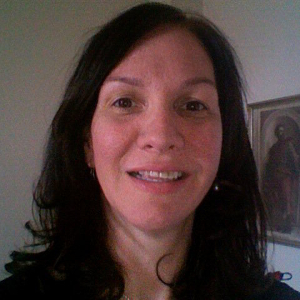
Lindsay’s List features biking as the transportation of choice (among other conservation lifestyle options). Photo: wornmagazine.com.
I’ve long been concerned with what I consider the in-group of peak oilers versus those who are clueless about the phenomenon. What concerns me is a trend that I sometimes observe wherein a peak-oil-aware individual expresses scorn for the rest of the population, or at the least, indifference to their welfare.
Now, I’m not saying that every peak oil, climate change and economic crisis intellectual out there holds this view, or expresses these thoughts. But enough do that I’ve taken notice.
What I often hear them say is that if these mainstream folks are too stupid, fat, lazy, anti-intellectual or whatever other flaw to get off their duff and learn about what’s about to hit the fan, then it’s not the problem of said peak oiler. Let ’em die in the coming energy apocalypse.
Often, when I’ve countered that it takes outreach to meet where people where they are to help move the larger public along in awareness and action (a core principle of the Transition movement in which I’m involved), I’m told that such an approach amounts to “dumbing it down.”
Don’t forget the little guy (and gal)
But for me, both logically and spiritually, it remains important to connect with people at all levels of their awareness about energy, climate and the economy.
In some ways, I think it’s more important to target the uninitiated because there’s already a plethora of writers out there advising engaged folks on permaculture, backyard chickens, urban homesteading and food security. Still others are encouraging activism work in Transition groups, NGOs and other ways to take a more involved community approach to the coming social, cultural and economic changes.
My populist roots
I remember way back when I was in college, and I was learning all these fancy compositional tools for choreography (I was a dance major undergrad—go figure). Anyway, though I sought to master the classical ideals of form, balance and contrast, and appreciated their historical relevance in a Martha Graham or Agnes De Mille piece, I found myself drawn again and again to popular dance forms, whether folk dances, rock and roll dance, club dancing, hoofing, street dancing or plain old pedestrian movement. I once got in big trouble at school for doing a Judson Church-inspired pedestrian dance piece for an assignment. I was told I lacked “movement invention.” I called it minimalism.
Well it’s that same draw toward the everyday, the ordinary, the anonymous that informs my ethos that it is “everyman” who most needs to learn about and buy into what peak oil means. Or in my case, it’s every woman.
Besides, the uninformed are the ones most likely to come running after those who are prepared, pitchforks in hand, demanding a dozen of your backyard chickens’ eggs. These folks need awareness raising more than just about anything else. We don’t want them to be the last ones to know what’s coming down the pike.
And I have something in common with these folks.
Unlike a lot of peak oil initiates, I haven’t chucked it all to build my off-the-grid straw bale compound. I’m not a farmer. I’m not even an urban homesteader. I’m just a small Transition Town dwelling urban denizen. Like the majority of folks living in America today, I’m not in a position to move from my location. And just like the majority of folks living in America today, I work in an office and live out the culture of other urban issues, mainly getting the majority of my food from others.
At the same time, I have taken steps that many urban and suburban dwellers haven’t. But not every step I could. I have a lot in common with them. So I have a lot to share with and a lot to learn from other city slickers who are wondering how they can Transition right where they are.
Conservation to the fore
Further, I’ve increasingly adopted the conviction that conservation is the top strategy we must pursue to not only prepare for peak oil and address climate change, but also to transform the consciousness and cultural habits of our people.
That’s why I’ve started a new conservation oriented blog called Lindsay’s List. It’s a blog mostly geared toward women because we make the majority of buying decisions in a home and are therefore more likely to influence the material values of a family. But that doesn’t mean there won’t be things for the guys, too.
My main objective is simply to increase awareness of energy issues among regular people and encourage a new culture of conservation, one that isn’t bogged down by the negative association that conservation must necessarily mean resentful, begrudging deprivation. Instead I look at the ways conservation is fun, traditional, and helps us see the simple beauty in our lives.
I’ll focus on the way conserving helps save money and frees up time, allowing people to put more emphasis on the things they say they really value, like relationships, family, opportunities, hobbies and DIY projects.
I hope you’ll check it out, subscribe to my daily tips (I promise, they’ll be short and fun while also hopefully, thought-provoking). I also hope you’ll share the site with folks (women especially) who you think might respond more to energy, environmental, and economic issues when delivered with a more lighthearted touch. And if you’re so inclined, share stories on Facebook and join my Facebook page and/or follow me on Twitter.
Thanks!
— Lindsay Curren, Lindsay’s List
P.S. I’ll still be the editor of Transition Voice!






